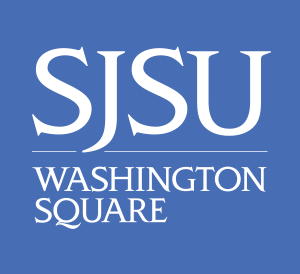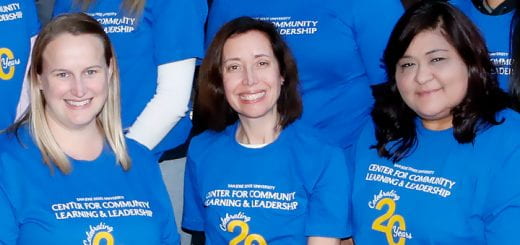Richard Sessions: Removing Obstacles For a Better Future

Richard Sessions is career businessman, entrepreneur and lecturer in San Jose State’s School of Information Systems and Technology. Photo by David Schmitz.
“I identify with San Jose State students, and now I have the ability to give these Spartans an opportunity for a better future.”
Richard Sessions is a career businessperson, leader of a $400 million marketing organization, entrepreneur and lecturer in San Jose State’s School of Information Systems and Technology at the Lucas College and Graduate School of Business. Sessions has a learning disability, dyslexia, that makes it difficult to read and process speech—which challenged him as a student and has now informed his teaching style. His late daughter also struggled with dyslexia. As a result, he recognizes and helps San Jose State students in his classes who confront similar invisible obstacles to learning.
“Somebody with a disability has to work doubly hard, triply hard on their education. Often they can’t work and pursue a college education at the same time. This potentially creates an economic burden,” he says. “That’s when I realized that I have the ability to give these students an opportunity for a better future.”
Sessions knew he wanted to create opportunities for Spartans living with learning difficulties, but wasn’t sure where to start.
“The best way to get started with giving is to meet with the people in University Advancement,” he says. “They provide excellent advice on the best approach to helping students while meeting your giving goals.”
After discussing his options, Sessions decided to establish a scholarship at the Lucas College and Graduate School of Business for students with disabilities through the Accessible Education Center by designating San Jose State beneficiary in his retirement plan. He sees the opportunity to support Spartans living with disabilities as a way to shed light on the otherwise invisible problems some students face.
“This scholarship is recognition of a potentially underserved student population that people don’t think of,” he says. “You cannot always see learning disabilities. Sometimes students don’t even know they have a disability. When we think of disabilities, we think of having ramps for wheelchairs. Where are the ramps for dyslexics?”
Sessions envisions the future recipients of the AEC scholarship finding the resources they need to achieve in school and beyond. His message for students with disabilities reflects his experience as a dyslexic student, businessperson and parent: “Most dyslexics are bright, but they run into this learning roadblock,” he says. “Yes, you have to try harder. Don’t let that hold you back.”



